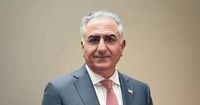As tensions escalate in the Middle East, the spotlight has turned sharply on Iran’s internal struggle and the role of Reza Pahlavi, the exiled son of Iran’s former monarch. On June 14, 2025, Pahlavi took to social media and video platforms to deliver a powerful message to the Iranian people, accusing Supreme Leader Ayatollah Ali Khamenei of dragging the nation into a war that does not reflect the will of its citizens. “This is not Iran’s war, nor the war of the Iranian people. It is Khamenei’s war and the Islamic Republic’s war,” he declared in a post written in Persian.
Pahlavi’s words come amid a backdrop of increasing Israeli airstrikes on Iranian territory and growing regional instability. He framed the current crisis as a battle between the Iranian nation and what he called the “destructive Islamic Republic,” urging mass protests and a general strike as a means to topple the regime. His call to action is clear: “Iran belongs to you, and reclaiming it is in your hands.”
Born in 1960, Reza Pahlavi has lived in exile since the 1979 Iranian Revolution overthrew his father, Mohammad Reza Pahlavi, the last Shah of Iran. The Shah’s reign, which lasted from 1941 to 1979, was marked by a vision of modernization and Western-style development, but it ended abruptly as revolutionary forces established the Islamic Republic, a theocratic regime that severed many ties with the West.
Despite his royal lineage, Pahlavi does not seek to restore the monarchy. Instead, he advocates for a secular, democratic Iran, emphasizing nonviolent resistance and international support for Iranian protesters. In his recent video message, he encouraged citizens to engage in civil disobedience—actions such as not showing up for work, reducing productivity, or arriving late—to accelerate the regime’s collapse. He also made a direct appeal to members of Iran’s police and security forces, urging them to break ranks and join the people in their quest for change.
Pahlavi’s calls have garnered attention in Western media and among some policymakers who view him as a symbol of potential democratic reform in Iran. Speculation persists that Western governments might be considering him as an alternative leader to replace Ayatollah Khamenei, though these engagements appear focused more on discussing Iran’s future than on orchestrating any direct regime change.
The prospect of such a dramatic political shift carries profound implications. A transition from theocratic rule to secular democracy could reshape Iran’s political landscape, potentially introducing a parliamentary system, safeguarding individual rights, and separating religion from state affairs. However, these changes would require consensus among diverse political factions within the country—a tall order given Iran’s complex social fabric.
Social reforms under a new secular government might include enhanced women’s rights, greater freedom of expression, and expanded access to education. While these prospects excite many reformists, they are likely to encounter stiff resistance from conservative elements entrenched in Iranian society.
Regionally, a change in Iran’s leadership could recalibrate foreign relations, possibly paving the way for improved ties with Western nations and neighboring countries. Yet, this shift could unsettle Iran’s longstanding allies such as Hezbollah and the Syrian government, who have benefited from the current regime’s support and policies.
Internally, the path to transition is fraught with challenges. Hardline factions loyal to the Islamic Republic might resist change violently, economic instability could deepen, and rebuilding political institutions would be an enormous task. The success of any transition hinges on managing these hurdles effectively to establish stable governance.
The Iranian regime, despite its controversies and international isolation, has maintained a firm grip on power for decades. Pahlavi’s vision of democratic reform and his calls for civil resistance highlight a deep yearning among many Iranians for change, but the outcome remains uncertain.
As the conflict between Israel and Iran intensifies, the stakes are higher than ever. The West’s strategic interest in preventing Iran from becoming a nuclear power is clear, but whether this will evolve into a broader effort to instigate regime change remains a subject of speculation. What is undeniable is that the Iranian people are at the heart of this unfolding drama, caught between a regime many view as oppressive and the hopes for a democratic future championed by figures like Reza Pahlavi.
In a world where geopolitical shifts can ripple across continents, the struggle within Iran is a potent reminder of the complexities and human dimensions behind headlines. It is a story of power, resistance, and the enduring quest for self-determination that continues to captivate observers worldwide.

